Levine Querido
With the support of the publisher, Shelf Awareness celebrates Levine Querido, headed by Arthur A. Levine, whose first titles appear this summer and fall.
With the support of the publisher, Shelf Awareness celebrates Levine Querido, headed by Arthur A. Levine, whose first titles appear this summer and fall.
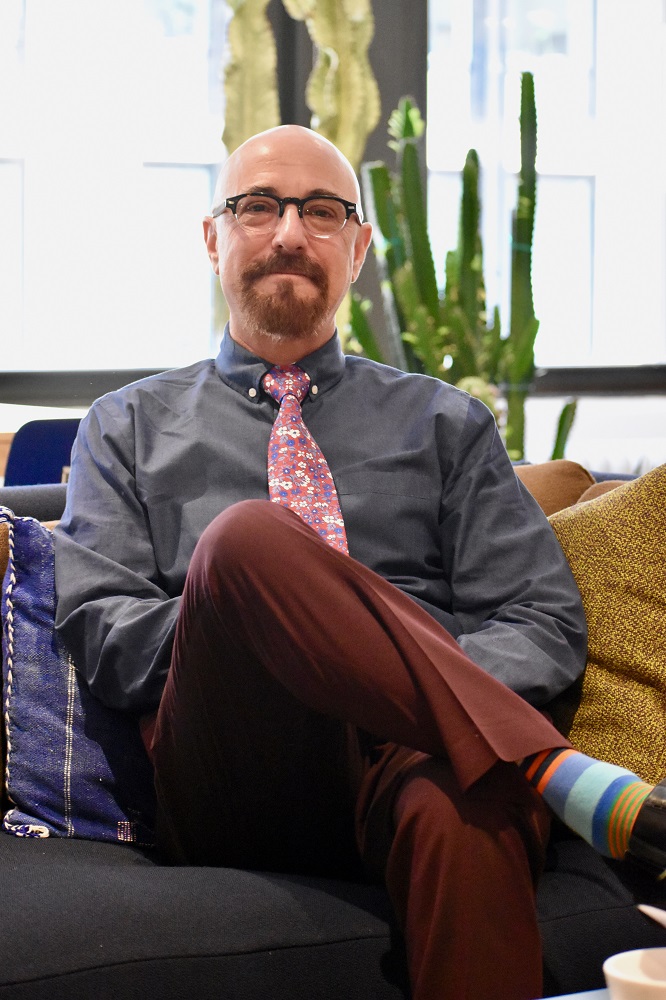 |
|
| Arthur A. Levine | |
Arthur A. Levine founded Levine Querido in April 2019, after a 23-year tenure as the President and Publisher of Arthur A. Levine Books, an imprint of Scholastic. He founded Arthur A. Levine Books in 1996, coming over from Knopf Books for Young Readers where he had been Editor in Chief. His determination to bring a diverse selection of "The Best of the World's Literature for Young People" to American readers was the guiding principle in all of AALB's publishing since its beginnings and continues to be the guiding light at Levine Querido. In addition to overseeing the company, Arthur edits between eight and ten books annually.
Dear friends,
When you start a new business, the world asks of you: How will your company "disrupt" the industry in which it exists? I'm sure some will see disruption in Levine Querido's mission to find excellence in the incredible diversity of America; writers who are Black, Latinx, LGBTQIA+, Asian, Indigenous, who practice a minority religion, who live with a disability and others. But far more will just see themselves, and they'll see stories of others with whom they can relate. They'll see a vibrancy and richness on your shelves, in stories and artwork, that make for a literary selection that's simply more interesting and beautiful.
Is it disruptive to look for great writing and talent across the globe? You might just as well ask if looking to other cultures for a great meal is disruptive. (If I named the best foods I've ever had, I'd certainly have to list pasta from Italy, croissants from France, Mexican mole poblano, Indian curry...). We're bringing you, on the Em Querido list, a book feast to make your mouth water. In the U.S., we've always found great books from abroad--Pippi Longstocking, Winnie the Pooh, The Rainbow Fish, Pinocchio. At LQ we're letting our passion and excitement for authors and artists in other countries give you a steady stream of great discoveries.
I think that probably our most disruptive quality here at LQ is our lack of cynicism. For instance, we think that making gorgeous, original jacket designs will draw readers' eyes to our books. We're not interested in making copies of copies of covers that were popular recently. We're also looking for books that make their own mark--not ones that are "just like" last month's bestseller with one plot element changed.
And so, my fellow disruptors, I hope that you find our books attractive, interesting and meaningful. Please let us know what you think after you've read them; we're a bunch of book lovers over here and we never tire of unpacking a good story.
All the best,
Arthur
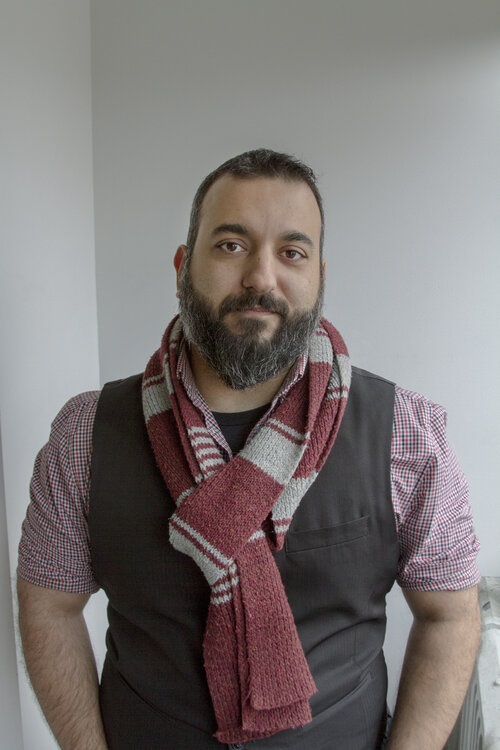 |
|
| Daniel Nayeri | |
Daniel Nayeri was born in Iran and spent several years as a refugee before immigrating to Oklahoma at age eight with his family. He is an author, and the publisher of Odd Dot, an imprint of Macmillan. He lives with his wife and son in Jersey City, N.J.
Please tell me about this book. The title, Everything Sad Is Untrue: (a true story), is quite remarkable. Is this biography?
It's entirely biographical. In fact, the first version I wrote was a nonfiction essay for adults. But it didn't work. The heart of the story was from the perspective of a pre-teen. So, I chose to create that narrator. I changed some names, and I invented dialogue. But otherwise, I think of it as a memoir.
It's the story of how my mother converted to Christianity, how we became refugees when she was caught by the Iranian secret police and how we ended up in Oklahoma.
Khosrou (known to his neighbor Oklahomans as Daniel) has a distinct voice. How did you find this voice?
The narrator is me, and so he bears many of the flaws of my character. He thinks he knows what's what, when the reader can tell otherwise. He begs when he hates to beg. He wants a friend but doesn't know how to be one. I think all these qualities are inherently funny in a pre-teen, standing in front of a mirror, flexing his arms at the world. He really and truly thinks he's strong enough to tell this story without weeping. I guess it's not funny ha-ha, but that's the sense of humor.
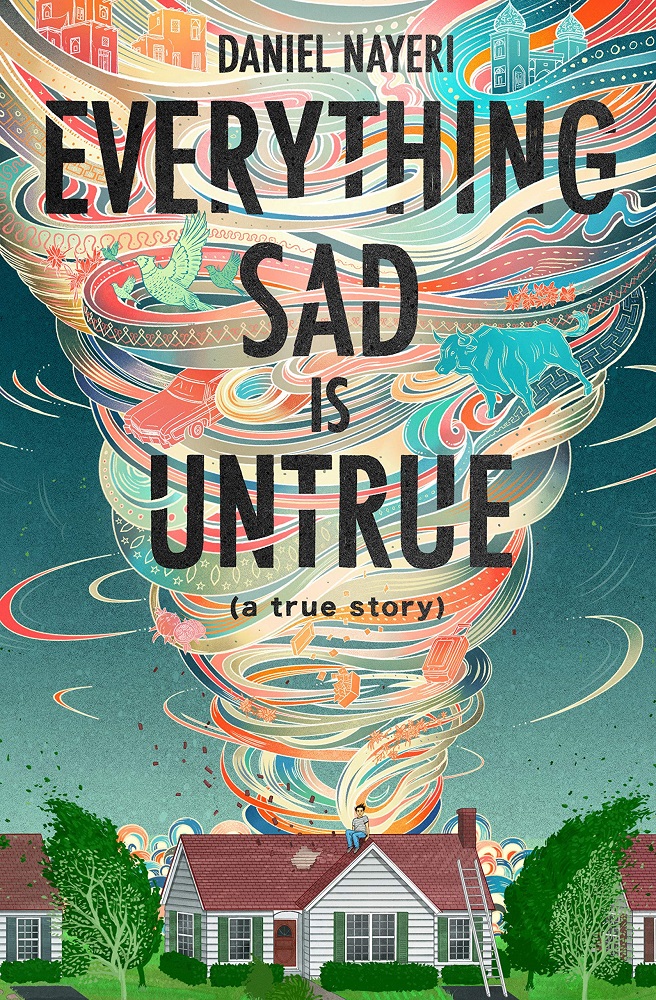 Tell me about the format of the book. What made you want to fashion a protagonist after Scheherazade?
Tell me about the format of the book. What made you want to fashion a protagonist after Scheherazade?
Khosrou tells these stories--his family history, Persian folklore and the history of the country--to a fundamentally skeptical audience of classmates. This is the dynamic of Scheherazade in the One Thousand and One Nights, telling stories to the king. If she fails, she dies. If he fails, he dies the way kids die in middle school. He's hated and given wedgies until kingdom come. Eternal stakes for everybody.
In your dedication you say, "I didn't know that life would make a liar out of me" and the first sentence of the book is "All Persians are liars and lying is a sin." How do you want readers to feel when they first start this book? How do you want them to feel when they finish?
At the beginning, I want them to love the narrator out of pity. By the end I want them to love him as a friend.
It is so easy to read that first line, "All Persians are liars, and lying is a sin," as a uniquely Persian problem. But that's not what the line says. It's referring to Epimenides, the philosopher, who would hold up a sign that said, "All Cretans are liars." The paradox is that Epimenides was himself a Cretan.
The book is immediately asking the reader not to lie to themselves. Not to dare believe they are any better. Not to omit themselves from the guilt. And from there it sets out to convince the reader that strictly speaking, all our memories are lies we tell ourselves.
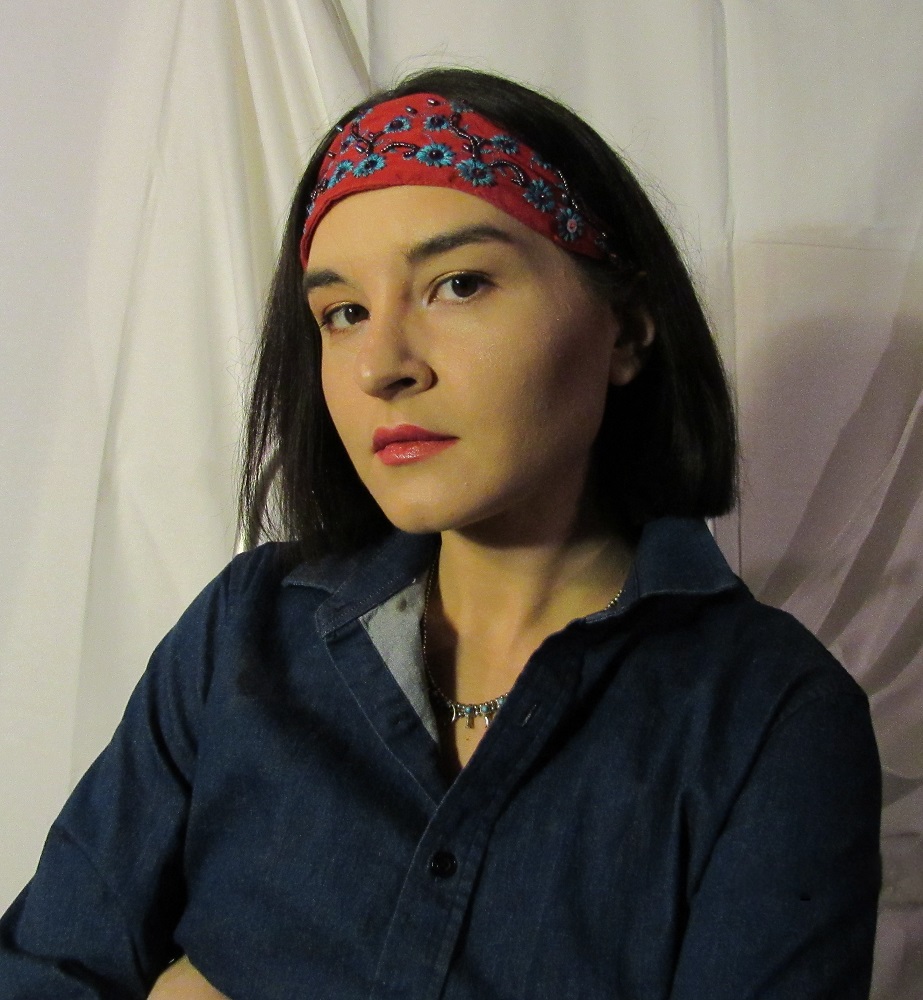 |
|
| Darcie Little Badger | |
Darcie Little Badger is a Lipan Apache writer with a Ph.D. in oceanography. Her debut novel, Elatsoe, will publish with Levine Querido in August 2020 and is a BookExpo 2020 Young Adult Buzz Finalist. She currently lives on both coasts of the United States and is engaged to a veterinarian who cosplays as Cassandra Pentaghast and Luke Skywalker.
I cannot get over how in love with your world-building I am. Tell me about your process creating this world.
The world started with the question: how would contemporary life change if the ghosts of animals roamed the earth? Invisible mosquitoes sipping on blood and carrying the red droplets into the air. Wooly mammoths crushing prized orchid gardens underfoot. Bodiless dogs howling for treats in the night. After refining that concept and creating the rules of these ghosts--i.e., how they function in the world of Elatsoe--I expanded my creative scope to everything else.
At one point, Ellie overhears people talking about a cornfield full of scarecrows with human eyes. There are also, maybe, "teenage-bodied vampires, carnivorous motormen, immortal serial killers, devil cults, cannibal families, and slenderpeople." How did you come up with the creatures that inhabit this world?
I have a deep appreciation for the horror genre. That includes urban legends, creepypasta and movies. The characters in that list, who unfortunately don't play a bigger role in Elatsoe (well, except for the vampires), are an homage of sorts. As for the scarecrows with human eyes: that was me playing with the creepier aspects of Ellie's world, the horrors that lurk in her personal scary story reservoir.
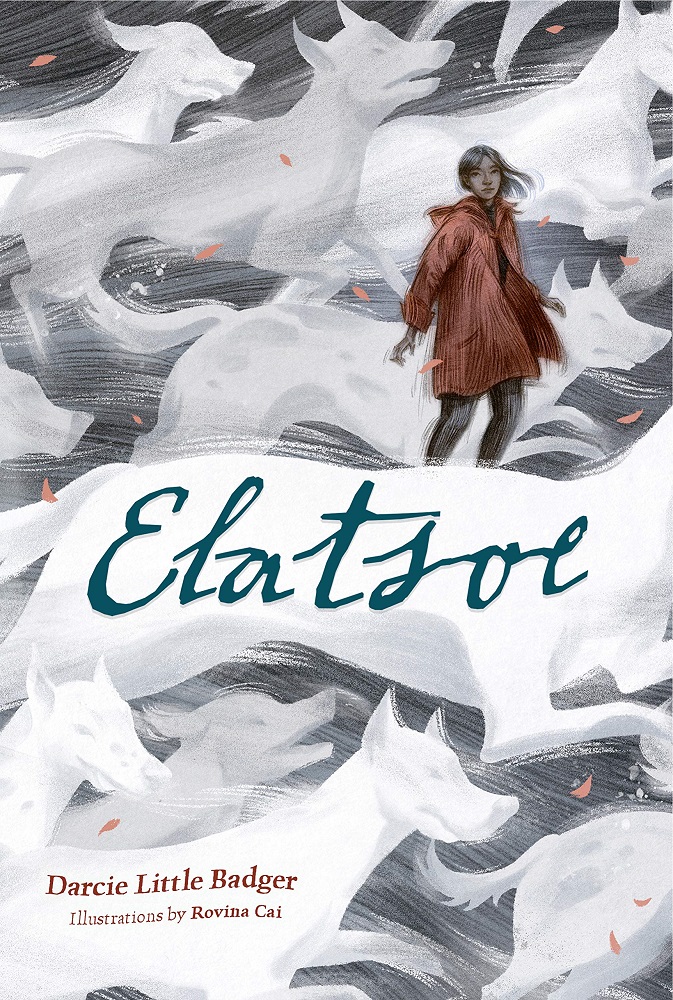 How macro did you go with how your world would function? There is magic and you tell readers that magic playing a part in crimes can be a "potential death blow against justice." What other things did you come up with along these lines?
How macro did you go with how your world would function? There is magic and you tell readers that magic playing a part in crimes can be a "potential death blow against justice." What other things did you come up with along these lines?
I did actually contemplate how things would work. Unfortunately, I rarely write stuff down if it doesn't go into the book. It would have been cool to make a manual for the maintenance and smooth operation of fungal transportation rings. Maybe that can be a side project.
There's a point when you relate the growing scourge of human-eyed scarecrows to monoculture corn and soy crops. Tell me about that.
Sometimes, I get cravings for corn. Not that watery, sweet yellow corn you find in every grocery store. I want rich blue corn with a flavor I haven't tasted in a long time. It's like my body needs the stuff. And I think of the Coleridge line, "Water, water everywhere, nor any drop to drink." Because there's corn everywhere. It just ain't the right kind.
And often, I feel that way about pop culture. Like I'm surrounded by so much of the same, but none of it is what I'm yearning for.
You of course know that Indigenous populations are the least represented groups in children's literature. Did this add pressure to your process?
Oof, yeah, in terms of pressure, I worry that some people are going to read my book and assume that it's an ethnography or that I am a mouthpiece for all Lipan Apache people (or even all Native people). Elatsoe is a fantasy/mystery book, and I'm one person.
What are you hoping readers will take from Elatsoe?
Overall, I hope they'll enjoy the read. If there's one take-away, it's this: don't let anyone use the story of Icarus as a weapon against your full potential.
That makes sense in the context of Elatsoe, I swear.
 |
|
| Nick Thomas | |
Nick Thomas is a Senior Editor with Levine Querido. Previously, he was Senior Editor at Arthur A. Levine Books, where he started as an Editorial Assistant. He has also held positions with Bloomsbury, Chicken House and David Fickling Books before returning to his AALB roots. He edits middle grade and young adult books and looks for stories that change something about you by the time you're finished.
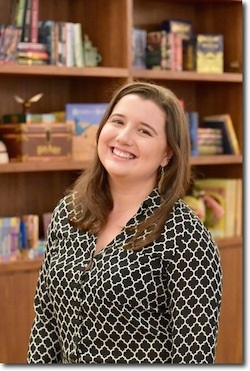 |
|
| Meghan McCullough | |
Meghan McCullough is an Assistant Editor at Levine Querido. Previously, she was an Editorial Assistant at Arthur A. Levine Books. Prior to joining Scholastic, she worked in marketing at Penguin Random House. She holds an MFA in Writing for Children and Young Adults from the New School.
Meghan McCullough: We have something in common. We were both booksellers! I worked briefly at Books of Wonder, where handselling is everything. How about you?
Nick Thomas: Yes! I worked at the amazing Books, Bytes, and Beyond in Glen Rock, N.J., and Little City Books in Hoboken, N.J.! I miss bookselling. I miss that moment where you have a few seconds to convince a reader to buy a book that you believe in, that you believe they'll love. So much of what we're doing at LQ is taking these stories we love and sharing our passion about them to the world.
 McCullough: Agreed. There's something special about having that moment happen in real time, face-to-face.
McCullough: Agreed. There's something special about having that moment happen in real time, face-to-face.
Thomas: What's your favorite spread from the LQ launch list? It's an embarrassment of riches, to be honest.
McCullough: Our launch list is AWASH in gorgeous artwork. I'm partial to the spread in This Old Dog, where Old Dog and girl are asleep in her room, and a warm slat of golden light peeks out across them. I feel as if I'm in that room with them--on the edge of dreaming. What about you?
Thomas: I SWEAR I was about to pick that one too! I love the spread in Ginger & Chrysanthemum where they're walking with Grandma to her birthday party. There's this moment of anticipation, and you can see how much these two cousins love their Grandma--and each other.
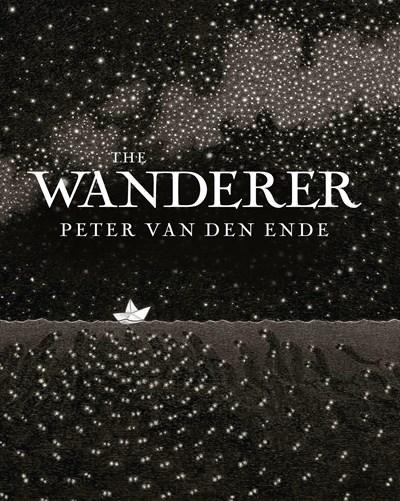 McCullough: Yes, I love that one too!
McCullough: Yes, I love that one too!
Thomas: Also, any spread in The Wanderer. Like the one with all the deep sea "fish" looking at the boat.
McCullough: Do you have a favorite line from the LQ list?
Thomas: I love the opening line of Lupe Wong Won't Dance: "My gym shorts burrow into my butt crack like a frightened groundhog." I mean, how could you not? You could flip to any page in Eric Gansworth's Apple (Skin to the Core) and find yourself with any number of INCREDIBLE lines.
"When we are born outsiders, we sometimes
find bridges we can make with our own stories
embracing the ways they are connected, instead
of pointing out the gaps between the two sides."
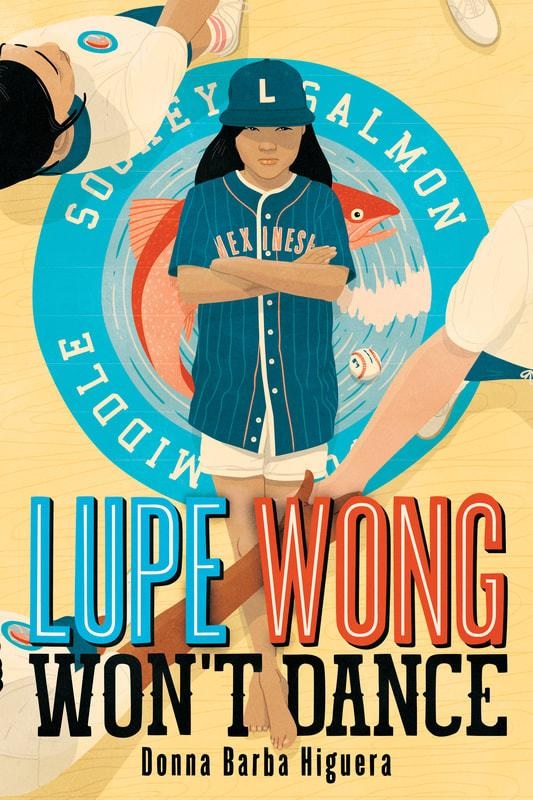 McCullough: There's a paragraph in Everything Sad Is Untrue that makes me cry every time I read it. Here you have Daniel, the character, at his most vulnerable, saying some of the scariest things I can imagine saying. It both inspires and guts me to my core:
McCullough: There's a paragraph in Everything Sad Is Untrue that makes me cry every time I read it. Here you have Daniel, the character, at his most vulnerable, saying some of the scariest things I can imagine saying. It both inspires and guts me to my core:
"I am ugly and I speak funny. I am poor. My clothes are used and my food smells bad. I pick my nose. I don't know the jokes and stories you like, or the rules to the games. I don't know what anybody wants from me.
But like you, I was made carefully, by a God who loved what He saw.
Like you, I want a friend."
Thomas: That's powerful.
McCullough: Last one. What makes a book an "LQ book?"
 Thomas: In many ways we don't WANT there to be too obvious of a common thread, right? We hope when you pick up an LQ book, you feel how much love was put into it. First, from our authors and illustrators. They're creating books of the heart and pouring their love into their characters. After that, we hope that love and care come through in the jacket design, typography, paper, marketing, everything.
Thomas: In many ways we don't WANT there to be too obvious of a common thread, right? We hope when you pick up an LQ book, you feel how much love was put into it. First, from our authors and illustrators. They're creating books of the heart and pouring their love into their characters. After that, we hope that love and care come through in the jacket design, typography, paper, marketing, everything.
McCullough: "1000%." Our debut list could not be more diverse--and that remains true for the lists to come! There's an underlying ethos of passion and care that connects them, and that comes through not only when they are read but also when they are held.